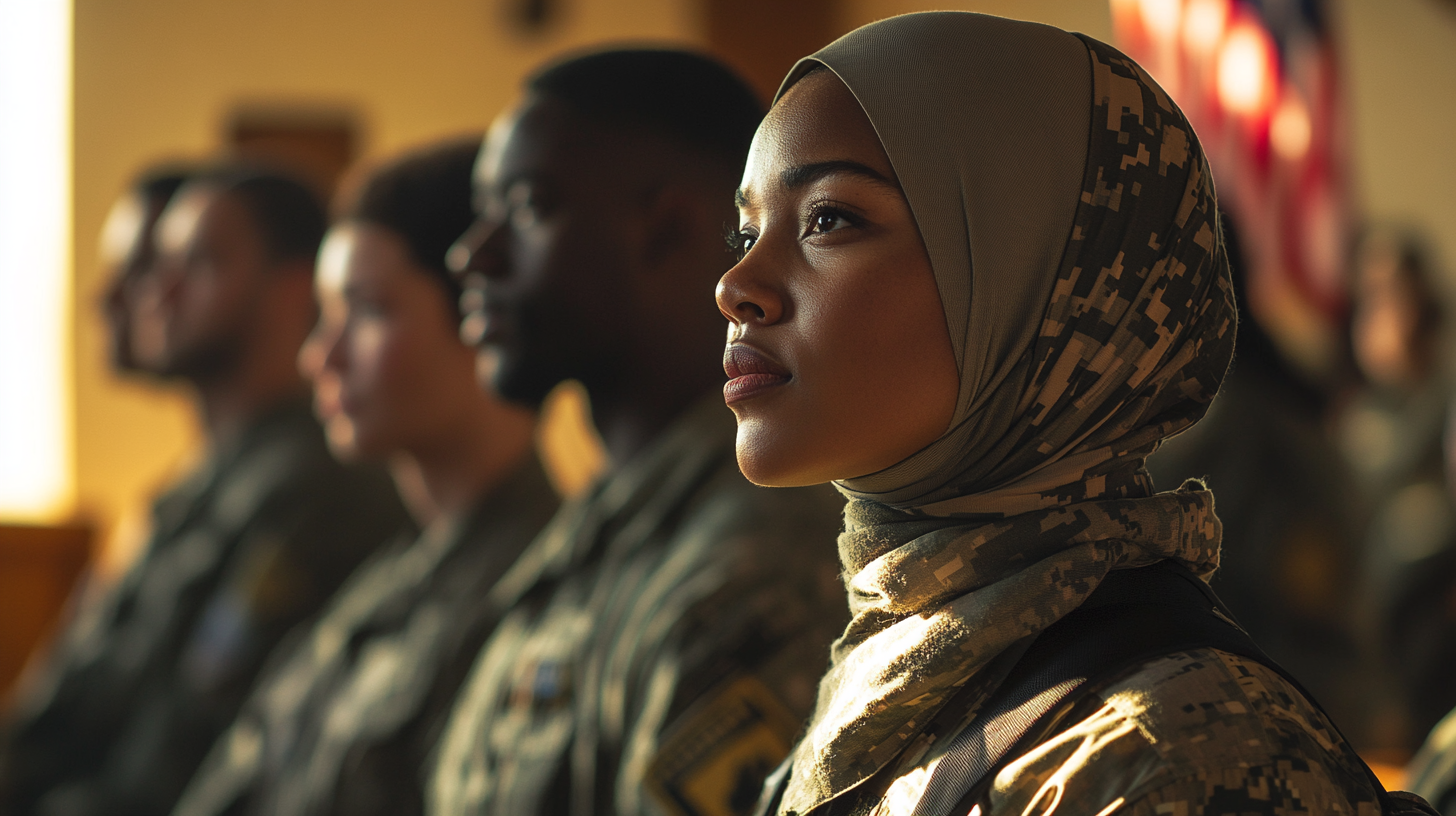US Military’s Commitment to Religious Diversity Faces Uncertain Future with Pete Hegseth Nomination
As the U.S. military celebrates its diverse and inclusive chaplaincy program, which supports over 200 faith groups, concerns loom over the nomination of Pete Hegseth for defense secretary by President-elect Donald Trump. Hegseth, known for his conservative Christian views, presents a potential challenge to the military’s ethos of religious pluralism. This development raises various implications for religious diversity within one of the most diverse institutions in the United States.
A Tradition of Inclusivity
The U.S. military has long taken pride in its approach to religious diversity, with its chaplaincy programs ensuring that service members of all faiths feel supported. This inclusivity is exemplified by significant milestones, such as the commission of the first female Muslim Chaplain Candidate, 2nd Lt. Khady Ndiaye, highlighting the military’s effort to reflect America’s rich religious tapestry.
Maj. Gen. Bill Green, Army Chief of Chaplains, has emphasized this commitment, describing the chaplaincy as “caring for the entire Army family, regardless of personal beliefs.” It’s a mission that accommodates a wide variety of religious practices, ranging from Christianity to Buddhism and universally accepts different religious expressions within the military framework.
A Nomination Raising Eyebrows
However, with the nomination of Pete Hegseth, this tradition of inclusivity could face challenges. Known for intertwining Christian and American identities, Hegseth’s views have garnered scrutiny from critics who fear undermining the military’s religious diversity balance. His previous remarks often suggest a preference for Christian nationalist ideologies, potentially clashing with the inclusive environment the military has strived to build.
Mikey Weinstein, president of the Military Religious Freedom Foundation, is among those voicing concerns. “Promoting a fundamentalist Christian dominance threatens to erode the religious freedoms we have championed within the military,” he argues. Weinstein stresses the need to maintain constitutional restrictions on religious expressions to preserve fairness and freedom.
Support and Opposition
Hegseth’s nomination is not without support. Some, like retired Lt. Col. Damon Friedman, believe his appointment would eliminate unnecessary diversity initiatives, focusing instead on military cohesion and effectiveness as a “war-fighting machine.” Sen. Bill Hagerty echoes this sentiment, suggesting a redirection towards traditional military values over current diversity efforts.
Yet, critics worry about Hegseth’s past controversies and public statements, particularly towards Islam and Israel, exacerbating divisions rather than unity. Dr. Ronit Stahl, of UC Berkeley, highlights the risks, saying, “A defense secretary with a particular religious worldview could potentially alter the dynamics of religious pluralism within the military.”
Implications for the Community
On a local scale, the Rio Grande Valley community, known for its diverse population and strong military ties, may experience tangible impacts if such a shift occurs at the Pentagon. With many veterans and active-duty service members in the area, this news comes with mixed emotions. While some see the changes proposed by Hegseth as necessary for military focus, others fear it would compromise the inclusive environment that allows all service members to thrive.
Local veteran support groups could play a pivotal role in navigating these changes, providing resources and advocacy to ensure all religious practices remain respected within the military.
Future Considerations
As Hegseth’s nomination progresses, the Senate’s decision will significantly influence the military’s stance on religious diversity. It remains crucial for the community and military personnel to engage in dialogues about the potential impacts of leadership changes, advocating for policies that align with foundational American values of freedom and inclusion.
In conclusion, while the U.S. military continues to pride itself on religious inclusivity, Hegseth’s potential leadership brings an opportunity for critical reflection and dialogue, encouraging stakeholders to uphold a balance that respects diverse beliefs while maintaining unity and effectiveness in service.
For more information about this issue and resources available for community members, Woke News encourages contacting local veteran organizations and religious inclusion advocates, who provide ongoing support and clarity on such pivotal matters.







